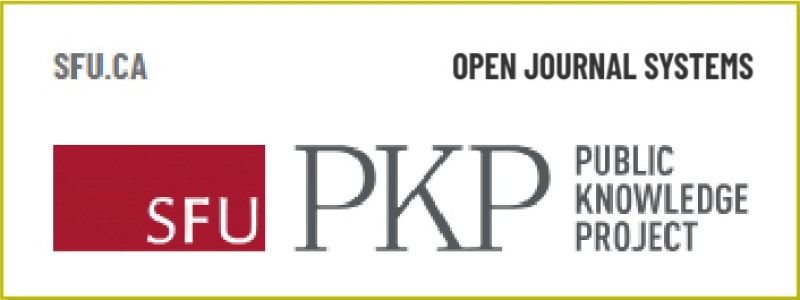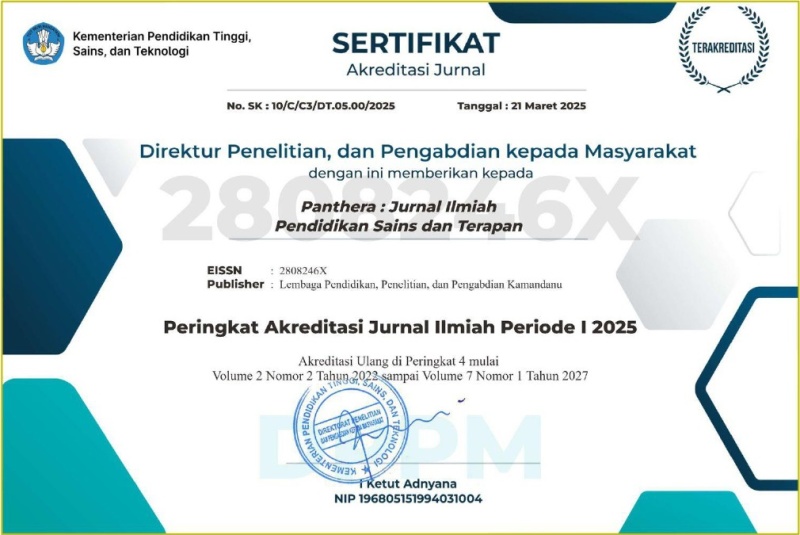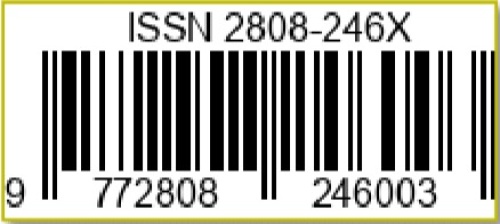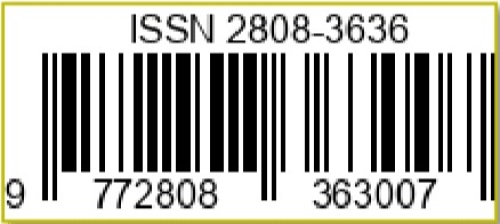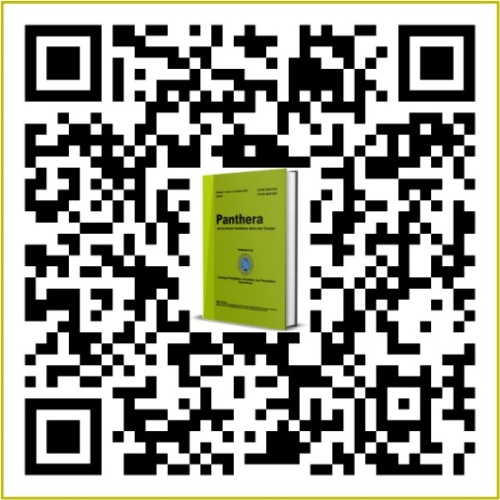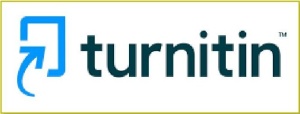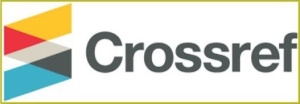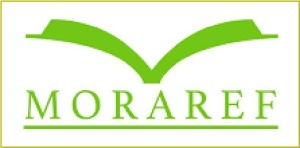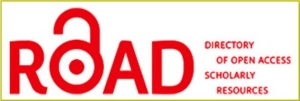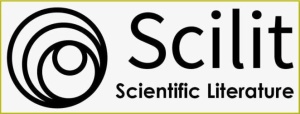Pengaruh Media Kompos Abu Sabut Kelapa terhadap Pertumbuhan Vegetatif Tanaman Cabai Rawit (Capsicum frustescens)
DOI:
https://doi.org/10.36312/pjipst.v2i3.101Keywords:
Compost Media, Coconut Coir Ash, Vegetative Growth, Cayenne Pepper.Abstract
The availability of nutrients in the growing media greatly affects the process of plant growth. This study aims to determine the effect of coconut coir compost media on the vegetative growth of cayenne pepper (Capsicum frustescens). This research was carried out at the Green House of the Department of Biology Education, Faculty of Applied Science and Engineering, Mandalika University of Education from September 22 - November 2, 2021 and the weighing was carried out at the Biology Laboratory, Faculty of Applied Science and Engineering, Mandalika University of Education. The design of this study used a completely randomized design (CRD) with 4 treatments and 6 replications, namely the treatment of coconut coir ash concentration P1 (coco coir ash concentration 5.0 grams), P2 (10 grams coconut coir ash concentration), P3 (coconut ash concentration 10 grams), P3 (coconut ash concentration 10 grams), coconut 15 grams), and 1 control treatment. Parameters observed were number of leaves, stem height, wet weight, and dry weight. The data obtained were analyzed using Analysis of Variance (ANOVA). The results showed that: 1) there were differences in the number of leaves and stem height for each treatment (P < 0.05), where the highest to lowest number of leaves and stem height were obtained in treatments P0, P1, P2, and P3; 2) there was no difference in wet weight for all treatments (P > 0.05); and 3) there was no difference in dry weight for all treatments (P > 0.05). The practicum guide enrichment materials produced from this study have met the criteria for media validation with a score of 70.83%, content validation 75%, and language validation 65%. With this result, the enrichment material is in the feasible category.
Downloads
References
Asra, R., Samarlina, R. A., & Silalahi, M. (2020). Hormon Tumbuhan. Jakarta: UKI Press.
Denian, A., & Fiani, A. (2001). Tanggapan Bahan Organik Limbah Pisang pada Tanah Podzolik. Jurnal Ilmu Tanah, 9(4), 16-18.
Fajriansyah, A., Purnomo, R. H., & Agustina, H. (2012). Pengaruh Tinggi Muka Air Tanah pada Pertumbuhan Tanaman Cabai (Capsicum annum) dengan Irigasi Bawah Permukaan (Subsurface Irrigation). Jurnal Teknik Pertanian Sriwijaya, 1(1), 46-54.
Fatimah, S., & Handarto, B. M. (2008). Pengaruh Komposisi Media Tanam terhadap Pertumbuhan dan Hasil Tanaman Sambiloto (Andrographis paniculata, Ness). Jurnal Embryo, 5(2), 133-148.
George, E. F., & Sherington, P. D. (1984). Plant Propagation by Tissue Culture: Handbook and Directory of Comercial Laboratories. Eversley: Exegetics Ltd.
Hardjowigeno, S. (2003). Klasifikasi Tanah dan Pedogenesis. Jakarta: Akademika Pressindo.
Ikhtiyanto, R. E. (2010). Pengaruh Pupuk Nitrogen dan Fosfor terhadap Pertumbuhan dan Produksi Tebu. Skripsi. Institut Pertanian Bogor.
Imanda, N., & Suketi, K. (2018). Pengaruh Jenis Media Tanam terhadap Pertumbuhan Bibit Pepaya (Carica papaya L.) Genotipe IPB 3, IPB 4, dan IPB 9. Buletin Agrohorti, 6(1), 99-111. https://doi.org/10.29244/agrob.v6i1.16829
Kusumaningrum, I., Hastuti, R. B., & Haryanti, S. (2007). Pengaruh Perasan Sargassum crassifolium dengan Konsentrasi yang Berbeda terhadap Pertumbuhan Tanaman Kedelai (Glycine max (L) Merill). Buletin Anatomi dan Fisiologi, 15(2), 17-23. https://doi.org/10.14710/baf.v15i2.2567
Nurfalach, D. R. (2010). Budidaya Tanaman Cabai Merah (Capsicum annum L.) di UPTD Perbibitan Tanaman Hortikultura Desa Pakopen Kecamatan Bandungan Kabupaten Semarang. Tugas Akhir. Universitas Sebelas Maret.
Parman, S. (2010). Pengaruh Intensitas Cahaya terhadap Produksi Umbi Tanaman Lobak (Raphanus sativus L). Buletin Anatomi dan Fisiologi, 18(2), 29-38. https://doi.org/10.14710/baf.v18i2.2609
Rahmawasiah. (2015). Pemanfaatan Ekstrak Daun Ketepeng dan Abu Sabut Kelapa untuk Pertumbuhan Tanaman Kacang Hijau (Phaseolus radiatus L.). Perbal : Jurnal Pertanian Berkelanjutan, 3(3), 1-9. http://dx.doi.org/10.30605/perbal.v3i3.725
Roidi, A. A. (2016). Pengaruh Pemberian Pupuk Cair Daun Lamtoro (Leucaena leucephala) terhadap Pertumbuhan dan Produktivitas Tanaman Sawi Pakcoy (Brasicca chinensis L.). Skripsi. Universitas Sanata Dharma.
Salisbury, F. B., & Ross, C. W. (2005). Fisiologi Tumbuhan. Bandung: ITB Press.
Setiawan, H. P. (2016). Alih Fungsi (Konversi) Lahan Pertanian ke Non Pertanian Kasus di Kelurahan Simpang Pasir Kecamatan Palaran Kota Samarinda. e-Journal Sosiatri-Sosiologi, 4(2), 280-293.
Sutanto, R. (2002). Penerapan Pertanian Organik: Permasyarakatan dan Pengembangannya. Yogyakarta: Kanisius.
Warnita., & Aisman. (2017). Pemberdayaan Masyarakat Melalui Budidaya Tanaman Cabai Merah dalam Pot. LOGISTA : Jurnal Ilmiah Pengabdian kepada Masyarakat, 1(2), 41-50. https://doi.org/10.25077/logista.1.2.41-50.2017
Waryanti, A., Sudarno., & Sutrisno, E. (2013). Studi Pengaruh Penambahan Sabut Kelapa pada Pembuatan Pupuk Cair dari Limbah Air Cucian Ikan terhadap Kualitas Unsur Hara Makro (CNPK). Jurnal Teknik Lingkungan, 2(4), 1-7.

Downloads
Published
How to Cite
Issue
Section
License
Copyright (c) 2022 Aulia Anggraini, Akhmad Sukri, & Masiah

This work is licensed under a Creative Commons Attribution-ShareAlike 4.0 International License.
-
Attribution — You must give appropriate credit, provide a link to the license, and indicate if changes were made. You may do so in any reasonable manner, but not in any way that suggests the licensor endorses you or your use.
-
ShareAlike — If you remix, transform, or build upon the material, you must distribute your contributions under the same license as the original.

